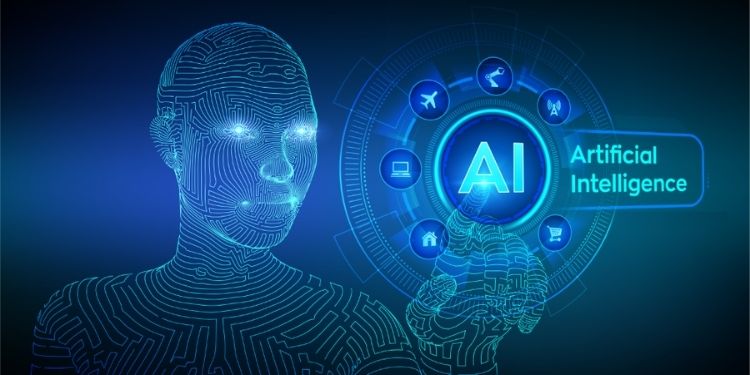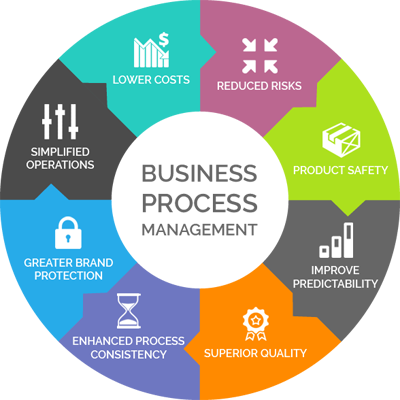Explained: How Artificial Intelligence (AI) Is Changing Business Process Management (BPM)

Artificial intelligence (AI) is all over the place. Every company is looking for ways to leverage its power in order to stay relevant and gain a competitive advantage. As a result, it’s not surprising that over 37% of businesses have implemented or plan to implement BPM systems in their processes, according to a recent survey.
Artificial intelligence (AI) is transforming the way businesses operate. Besides, modern BPM systems are more focused on providing the ultimate customer experience than they were on cost-cutting and process efficiency.
Instead of relying solely on reactive analytics, AI’s cognitive systems can provide proactive and predictive analytics. Therefore, not only does it improve performance efficiency and effectiveness, but it also provides managers with insights that they can use to make better decisions.
Table of Contents
ToggleBPM And AI Work Together To Increase Productivity
Business process-based applications are becoming more sophisticated thanks to technological advancements. However, while the new development is good for everyone, the lingering effects of stalled processes or delays continue to plague most businesses.
Though, recent advancements in AI are allowing businesses to forecast and plan for the future. Besides that, aligning future constraints with resources has become more accessible.
Intersections Of AI And BPM Systems
A type of AI– Text analytics/Natural Language Process is one of the primary intersection points between artificial intelligence (AI) and business process management (BPM), according to a Forrester study.
In addition, machine learning is another AI intersection that has an impact on the best BPM software. Machine learning enables AI engines to evaluate the efficiency of automated processes in your company besides making recommendations where appropriate. Businesses can modify business processes and logic based on these recommendations, resulting in increased process efficiency.
The fact is that using analytics to track process execution isn’t a novel concept. On the other hand, Artificial intelligence takes it a step further. AI can quickly guide process tuning and optimization using machine learning.
AI-based BPMs help improve process efficiency and the rate at which businesses react to the markets by streamlining backend operations, creating cutting-edge user interfaces, and smoothing out processes. Moreover, these factors also contribute to a greater ability to adapt to changing business environments.
What Impact Does AI Have On Today’s Business Operations?
With an AI-based BPM system and accounting , better process-flow pattern detection and business metrics predictions are made easier. It also aids in the implementation of corrective measures. Below are a few examples of how AI is changing the way businesses run their operations:
A. From Data To Prediction
Many sophisticated machine learning algorithms are emerging as a result of AI advancements. For example, algorithms like decision trees and neural networks are now much more readily available in ready-to-use libraries.
These algorithms will make it easier for business owners, managers, and employees to solve problems related to describing properties for input data determining the expected output. Researchers were able to master the game of Go, one of the most complicated with more positions than there are atoms in the universe, using search algorithms and deep hybrid learning.
While machine learning-based BPMs can detect patterns that human managers miss. The ability to successfully detect these patterns can be used in BPM to detect anomalous behavior, such as credit card fraud, or to segment data for specific services, such as prospect segmentation for marketing purposes.
That isn’t the only way machine learning techniques can help with change adoption. These methods also give you the necessary flexibility when changing inputs. As a result, business processes will be more adaptable – and the assessment may need to be revised if conditions change.
B. From Prediction To The Final Decision
It is now easier to apply decision theory and evaluate uncertain and conflicting situations thanks to advances in AI. Moreover, working with a set of preferences and within finite or infinite decision horizons is made easier with AI.
As a result, AI-based decision-theoretic models are in charge of making decisions in a business process. For example, you can use such models to decide whether to give a customer a recommendation or whether to buy or sell products, stocks, and so on.
For instance, consider the complexities you face when making marketing decisions. You must map out the constantly changing needs of your customers and align your services or products to meet those needs. Moreover, your understanding of changing customer behavior is an essential tool for developing short and long-term marketing strategies.
Modeling and simulation techniques provided by AI-based BPM offer you reliable insight into consumer behavior (in real-time) and the ability to predict future consumption trends.
C. From The Decision To Action
Many BPM vendors have developed different search algorithms that have been incorporated into powerful problem-solving and optimization techniques thanks to the increased power of AI.
Vendors may develop a discrete model defined by a set of states and actions using these techniques. Besides, businesses can easily define the search space by using the defined state and action. In this case, states are the nodes of the underlying graph, and actions are the possible transitions between the edges of your graph’s state, represented by the graph’s edges.
State-based search algorithms have emerged as a result of advancements in AI. Moreover, the models can be used in various discrete modeling techniques to solve scheduling, planning, and various other problems in business process management.
The Bottom Line:
Businesses can level up themselves from the competition by implementing AI-enabled BPM solutions. These technologies will empower businesses to overcome common performance roadblocks and achieve high levels of efficiency and quality. Nowadays AI helps the best accounting software to make a business achieve greater heights. Besides, AI is no longer seen as a means to an end but rather as a means to greater effectiveness and efficiency. For this reason, various businesses, both small and large, gradually realize the importance of adopting AI-based BPM software to achieve business process optimization and flexibility.
Tony Lanzap, a distinguished astrologer, possesses a profound understanding of celestial patterns. With years of experience, he has honed his skills in interpreting the cosmos to provide insightful guidance. Tony's unique approach blends traditional wisdom with modern insights, making him a sought-after expert in the realm of astrology. His commitment to helping individuals navigate life's journey has earned him acclaim and trust among those seeking cosmic clarity.
Recommended For You
Spread the loveScreenflow 10.0.6 crack plus serial key free download 2023 is a wonderful program that offers you a lot
Spread the loveRestoro-Crack-2.4.0.4-License-Key-2022-[Latest].Zip: Crack restoration is the process of repairing cracks in concrete or asphalt. Crack restoration can be used
Spread the loveWhat is Pikashow APK v10? Pikashow APK v10 is the latest version of the Pikashow app for Android.



![Restoro-Crack-2.4.0.4-License-Key-2022-[Latest].Zip](https://www.queknow.com/wp-content/uploads/2023/01/Untitled-design-2-1.png)



